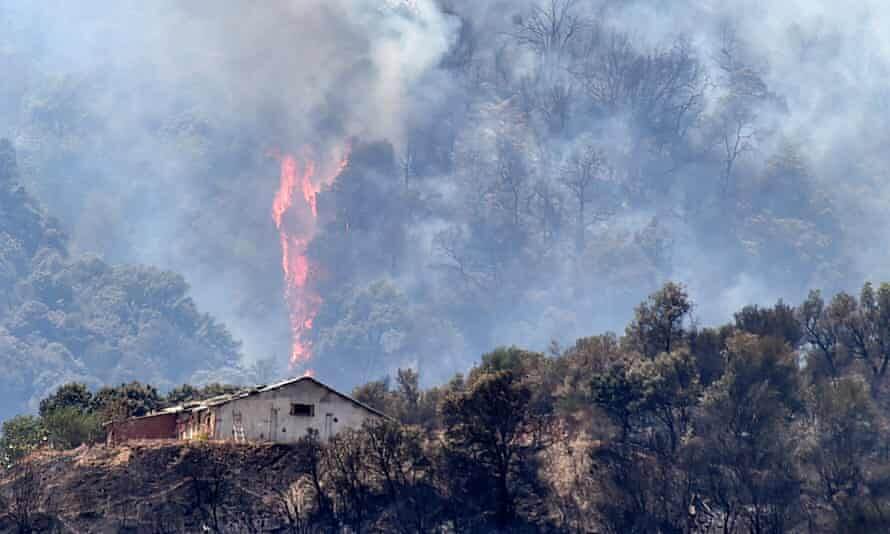Algeria has blamed two “terrorist” groups for starting the wildfires that ravaged many parts of the country this month. President Abdelmadjid Tebboune said one of the groups received support from Morocco and Israel and accused both countries of involvement in the deadly fires.
In an “extraordinary meeting” of the Algerian High Security Council on Wednesday, Tebboune said the wildfires that ravaged the northern part of the country were “hostile acts perpetrated by Morocco and its ally, the Zionist entity [Israel], against Algeria.” He added that the Movement for the Autonomy of Kabyle (MAK) and the Islamist Rachad movement, both labelled as terrorist organisations by the Algerian government, carried out the acts.
The President also claimed that the MAK “receives support and assistance from foreign parties,” referring to Morocco and Israel. “The constant hostile acts perpetrated by Morocco against Algeria have necessitated the revision of relations between the two countries and the intensification of security control at the western border,” Tebboune added.
Algeria and its neighbour Morocco have had sour relations for years. Rabat has accused Algiers of supporting the Polisario Front, which seeks to liberate disputed Western Sahara from Moroccan “occupation.” Algeria has provided the Polisario Front with arms, political support, and financial aid in its decades-long conflict with Morocco and hosts the Front’s chief, Brahim Ghali.
Also Read: Algeria Recalls Ambassador To Morocco Over Western Sahara Tensions
On the other hand, Morocco has a history of backing Algeria’s Berber minority and their quest for independence. As a result, Morocco supports the MAK, which aims to liberate the Kabyle region from Algeria and create an independent state for the Berbers.
Moreover, Algeria does not recognise Israel and often refers to it as the “Zionist entity” in official statements. Israel and Morocco normalised ties last year, and both sides agreed to establish diplomatic relations earlier this month.
At least 65 people, including 28 soldiers, have died in raging wildfires across Algeria this month. Most of the fires were in the Kabyle region. The fatalities and injuries occurred mainly around the regional capital of Tizi-Ouzou, which is surrounded by mountains and borders the Mediterranean Sea. The mountainous Kabyle region is known for its difficult-to-access and rugged terrain and has been facing water shortages as temperatures soar. These conditions, coupled with a global climate crisis, could have fuelled the fires that ravaged large parts of the region.
Similar wildfires have engulfed large parts of Greece, Algeria, Italy, and Israel. The European Union said that the Mediterranean had become a wildfire hotspot, fuelled by an intense heatwave and human-induced climate change. According to a recent United Nations report, climate scientists believe that humans burning fossil fuels has led to severe global warming and rapidly rising sea levels, accelerating extreme weather events like floods, heatwaves, and droughts.

